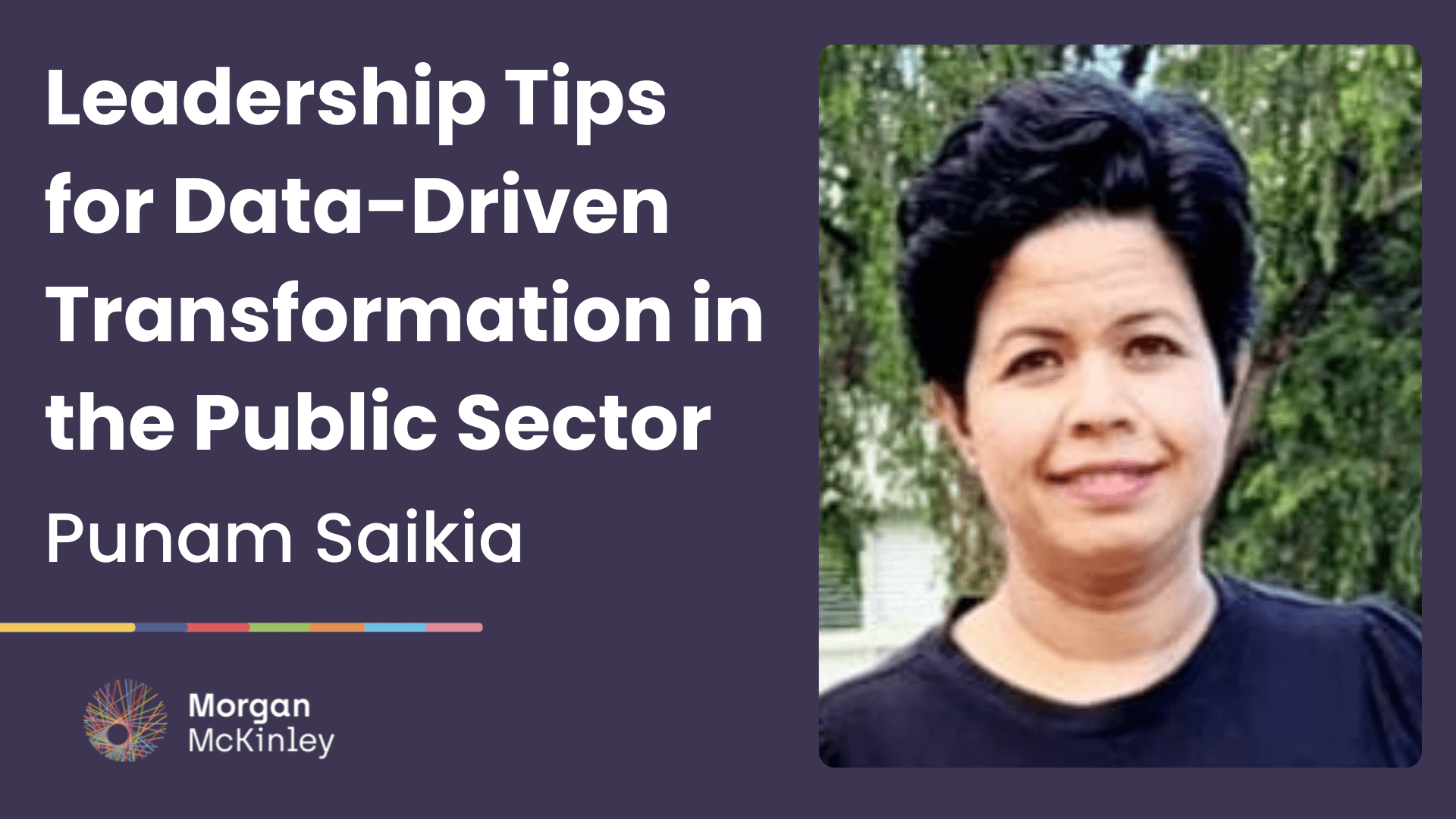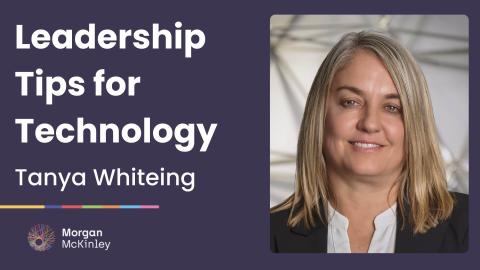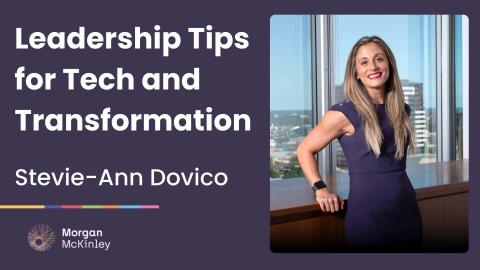Punam Saikia: Leadership Tips for Data-Driven Transformation in the Public Sector

Keys to Success: Resilience, Curiosity, and Connection
With over 20 years of experience driving digital transformation across some of Australia’s leading organisations, Punam Saikia stands as a powerful example of innovation and leadership in the technology sector.
Her career spans complex ICT program delivery, multimillion-dollar transformation initiatives, and leading high-performing teams through large-scale system integrations. Today, as Director of Data Systems and Integration at Transport for NSW, Punam brings deep expertise in data strategy, systems integration, and program management, delivering smarter, data-driven outcomes for the people of New South Wales.
As part of our Women in Technology and Leadership series, we are proud to spotlight Punam’s journey. It is a journey shaped by collaboration, adaptability and a passion for creating impact through public service technology.
What factors do you think have been critical to the success you have achieved in your career?
Resilience and adaptability have been critical throughout my career. The ability to evolve with changing environments, stay ahead of industry trends, and understand shifting business needs has helped me remain relevant and effective. I’ve worked across a variety of industries, each with its own unique culture, and I’ve always chosen to embrace change rather than resist it, using it as an opportunity to learn and grow.
I’m also a naturally curious person, and I thrive on learning, not just within my own field but across different career paths and disciplines. That constant desire to upskill, whether it’s in technology, AI or leadership, keeps me energised and ahead of the curve. I also strive to bring meaning and purpose into everything I do, which helps me stay motivated and grounded.
Mentorship and coaching have also played a significant role. I’ve had incredible mentors throughout my journey and now have the privilege of mentoring others. Interestingly, you often learn just as much from your mentees as they do from you.
Lastly, building a strong network has been instrumental in my growth. Early on, I focused primarily on delivering results. Over time, I realised how powerful professional relationships are. This is especially true in the Australian public sector, where trust, collaboration and visibility open new doors and drive opportunity.
What's the most valuable piece of advice you have received in your career and how did it help you?
One piece of advice that’s stayed with me is:
“Don’t compromise progress in the pursuit of perfection.”
It’s easy to get caught up in aiming for the ideal result, but in doing so, you can hold yourself back. Progress is forward motion, even if it’s not flawless. Taking consistent steps, learning from mistakes, adapting, and iterating is what builds momentum and growth.
When you focus on perfection, fear of failure or judgement can become paralysing. But if you shift your focus to continual improvement, each win, no matter how small, becomes a building block toward greater success.
What's the most challenging situation you have faced in your career and how did you overcome it?
One of the biggest challenges I faced was during a supply chain transformation program for a major wholesale meat retailer. I was new to the sector, and to understand it fully, I visited various plants and facilities to immerse myself in the process, from animal handling to final distribution.
The program was highly complex, with limited governance and project oversight, which caused significant transparency and communication issues. Stakeholder resistance was also a major hurdle, especially given the fear of job loss associated with automation.
To overcome these challenges, I focused on building strong relationships and returning to the basics of stakeholder engagement. I identified and worked closely with change champions, those who were open to the initiative, and empowered them to help build support across the business.
By remaining patient, collaborative, and focused on communication, we successfully delivered the program. It has since become a benchmark for transformation, and the approach I used, especially identifying internal advocates, is something I continue to apply in all major programs today.
If you were starting your career now, what would you do differently?
If I could go back, I’d make mentorship, coaching, and networking a much bigger priority from the beginning. I would have attended more conferences, panel discussions, and networking events, even in the early stages of my career.
I was so focused on delivering and meeting expectations that I didn’t realise how important it was to be visible and connected. Networking isn’t about self-promotion; it’s about learning from others, building trust, and creating opportunities.
A strong personal brand helps you stand out, showcase your expertise, and attract the right opportunities. Looking back, investing in relationships and growing a trusted network would have helped accelerate my career.
What advice would you give to other women aspiring to leadership positions in the public sector?
First and foremost, never underestimate your capabilities. If you’re unsure whether you’re ready for a leadership role, it’s essential to recognise that you may be more prepared than you think.
You don’t have to be 100% ready. No one ever is. Leadership isn’t about knowing everything, it’s about decision-making, influencing others, and solving problems. Every opportunity you take is a chance to learn, grow, and improve.
Maintain a positive mindset, one that you can actively build over time. Resilience is critical in today’s fast-paced world. Don’t let external factors define your self-worth or your path. Focus on the unique strengths and perspectives you bring, and remain confident in your ability to lead.
This interview offers a compelling look at a career shaped by adaptability, curiosity, and courage. From overcoming resistance in complex transformation programs to embracing the power of mentorship and networks, Punam Saikia proves that success isn’t just about skill, it’s about mindset, action, and people.














